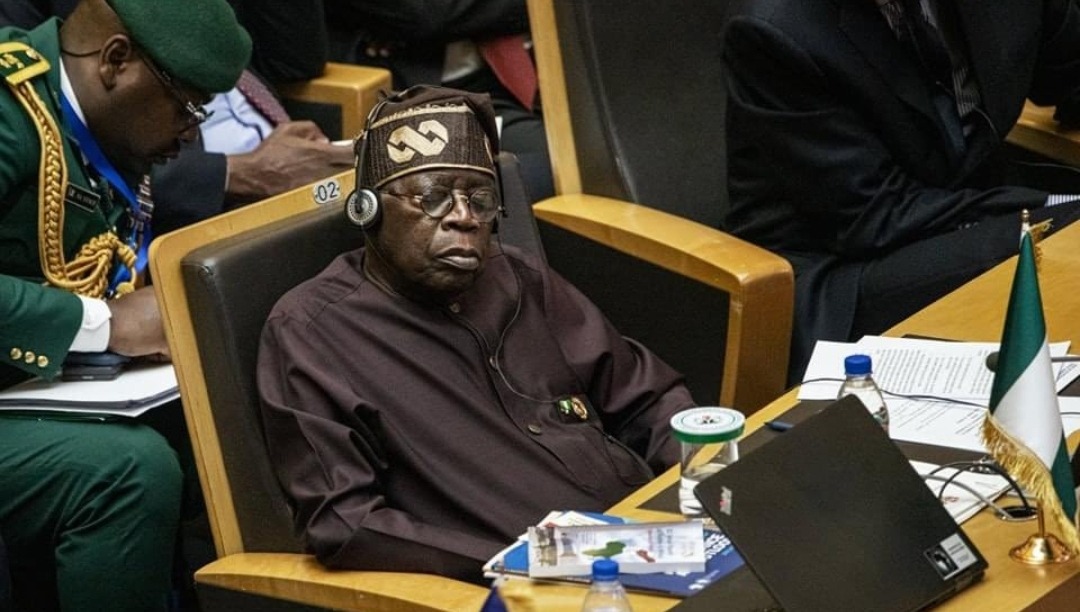Corruption, Security, and the ‘Renewed Hope’: Is the Government Really Delivering?
 Despite promises to pursue the rule of law, Nigeria continues to grapple with challenges undermining this fundamental principle. The President’s administration has made some significant decisions, such as increasing the retirement age of judges and improving their salaries, yet these measures are insufficient in addressing the deep-rooted issues facing the judiciary. The major problems remain: inadequate funding, poor infrastructure, and the lack of judicial independence. In several states, the executive still controls the judiciary’s budget, with judges relying on favors, like housing and vehicles, instead of securing their own entitlements through proper channels.
Despite promises to pursue the rule of law, Nigeria continues to grapple with challenges undermining this fundamental principle. The President’s administration has made some significant decisions, such as increasing the retirement age of judges and improving their salaries, yet these measures are insufficient in addressing the deep-rooted issues facing the judiciary. The major problems remain: inadequate funding, poor infrastructure, and the lack of judicial independence. In several states, the executive still controls the judiciary’s budget, with judges relying on favors, like housing and vehicles, instead of securing their own entitlements through proper channels.
As the public continues to lack access to justice, there is a growing reliance on alternative means to enforce rights—ranging from police intervention to the influence of unscrupulous bloggers and emergency activists. This trend undermines the credibility of the judicial system, as many litigants prefer police stations to the slow process of formal litigation. Meanwhile, Nigeria’s reputation in international arbitration is in decline, with conflicting court rulings on similar matters causing uncertainty in legal advice. These issues, combined with the infusion of political influence into the judiciary, make it clear that the executive’s actions undermine the independence of the third arm of government, further exacerbating the nation’s rule of law challenges.
Corruption, Security, and the ‘Renewed Hope’: Is the Government Really Delivering?
The government’s commitment to fighting corruption remains questionable. While it has launched anti-corruption campaigns, the real fight against corruption remains an elusive goal. The public is aware of high-ranking officials caught in corrupt practices involving billions of Naira, yet none have faced criminal charges. Instead, they are granted soft landings, such as relief from office, allowing them to enjoy the fruits of their misdeeds. Meanwhile, the government’s symbolic raids on ‘yahoo’ businesses, targeting youth involved in internet fraud, do little to address the structural corruption in the system.
In any meaningful fight against corruption, the judiciary plays a crucial role. However, without adequate funding and autonomy, the judiciary remains incapable of delivering fair judgments in corruption cases. Given these circumstances, it’s apparent that President Tinubu’s government has yet to take substantive action against corruption and is only offering lip service to the issue, with the aim of securing political legitimacy and support.
Food Security Crisis: How the Renewed Hope Agenda is Failing Nigeria’s Hungry Masses
One of the key pillars of President Tinubu’s agenda was to ensure food security for Nigerians. However, the reality on the ground tells a different story. While the government has promised to support farmers, improve agricultural production, and reduce food prices, security challenges have led to many farmers abandoning their lands due to constant threats from herdsmen and kidnappers. According to the National Bureau of Statistics, Nigerians paid an alarming N2.3 trillion in ransom in 2024, further destabilizing food production.
Compounding this issue is the government’s misguided policy of food palliatives. These palliatives, meant to address the economic hardship faced by the masses, have proven ineffective and merely serve to reinforce the poverty imposed by unsustainable economic policies. As Nigeria’s inflation rate soars, over 64% of the population skips meals, with many dying in stampedes for palliatives. The Constitution mandates the government to ensure food security, but under the current administration, food scarcity has only worsened, revealing a profound disconnect between policy intentions and implementation.
Devolved Powers or a Mirage? Assessing Nigeria’s Economic and Political Landscape
The ‘Renewed Hope’ agenda also touches on access to capital, with promises to provide Nigerians with financing for personal and business ventures. However, the Nigerian financial system, dominated by high interest rates and limited access to credit, has created a barrier for ordinary citizens. The average person cannot afford a house, car, or business without resorting to illicit means. To address this, the government must encourage financial institutions to provide long-term loans at moderate interest rates to support the entrepreneurial spirit of Nigerians.
Beyond economic reform, President Tinubu has also promised a shift towards devolution of power, true federalism, state police, and resource control. Yet, the question remains: is the government ready to fulfill these promises? The country’s economic challenges and political stagnation suggest that much more needs to be done to create an enabling environment for growth. If President Tinubu intends to truly make a difference, he must implement consistent policies and avoid the half-hearted efforts that have plagued previous administrations. As it stands, Nigeria still has a long way to go in achieving the promises of the Renewed Hope agenda.













